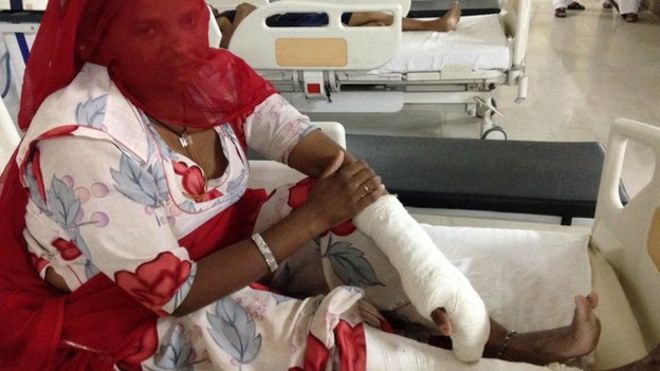
A heap of mud and bricks are all that distinguish this plot of land from the rest of the village of Dangawas in the northern Indian state of Rajasthan.
Last month however, it was the scene of a brutal attack on its Dalit (formerly known as untouchables) occupants, who remain at the bottom of the country’s outlawed but still prevalent caste system.
Members of the upper caste Jat community had assaulted 16 Dalits who had been squatting there with a view to ‘reclaiming their ownership of the land’.
Three people died in the incident, which marks the latest confrontation between the two communities in the state.
But authorities are reluctant to peg it as “caste violence” and are instead calling it a land dispute between two families.
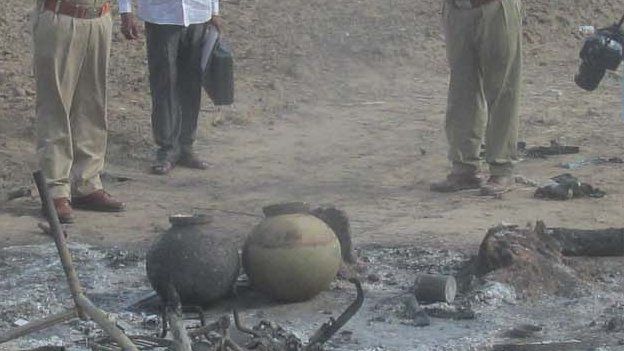
‘Attacked us like savages’
The Dalits say the assault was as brutal as it was swift.
One woman Papudi, whose hands and legs were broken in the violence said that on the morning of 14 May they were suddenly attacked by around 200 to 250 Jats, who rushed forward, armed with sticks, bricks and boulders and “attacked us like savages”.
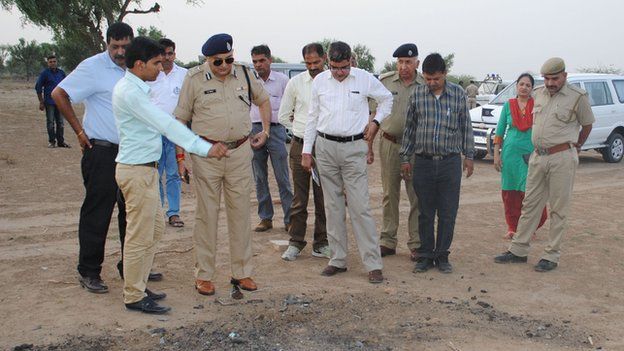
Others said the crowd beat them up, breaking their limbs, pulling their hair and tearing their clothes.
Dalit residents say they have not left the village since, fearing for their lives.
The wife of one of the victims, 21-year-old Ganesh, has been left to look after her four-month-old daughter alone. “What will happen to this little child and me?” she asks.
The official argument that the incident was the result of a “family dispute” has been the stance adopted by the Jats and echoed by state chief minister Vasundhara Raje.
A former Jat village headman said the fact that “these families belonged to two different castes was a mere coincidence”.
But the community’s anger with the Dalits for occupying the land is palpable.
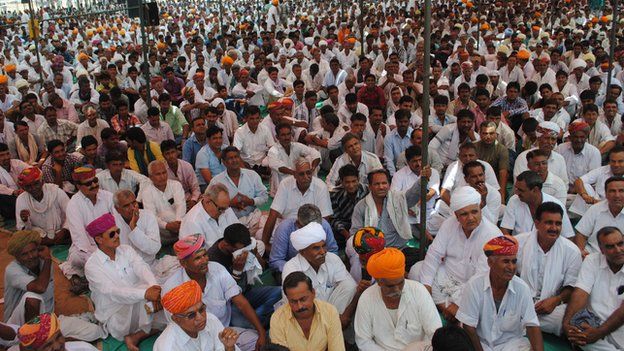
“If they occupy our land what do you want to us to do? Keep quiet? Naturally we would retaliate. We are not sorry as it was not our fault. They started it and they have to suffer”, said one Jat government employee, who declined to be named.
Police in Dangawas have so far arrested just six of the dozens named in a complaint.
Local police officer Amarjeet Singh Bedi said the matter was now being probed by the federal Central Bureau of Investigation (CBI) and all further arrests would be made by them.
Badri Narayan, a prominent pro-Dalit campaigner, says that the low rate of convictions in cases of caste violence was worrying. He believes the rise in such incidents is linked to instances where Dalits try to assert themselves.
Dalits still marginalised
Campaigners say land disputes between the dominant Jat community and the weaker Dalits are at the heart of increasing caste violence in Rajasthan.
In March, an 83-year-old woman was killed after her hut was set on fire, again over a dispute about land.
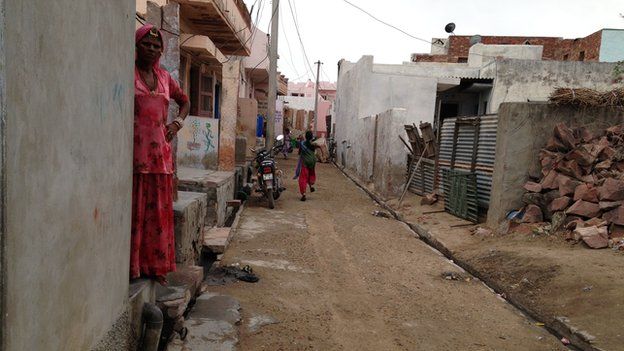
In another incident a Dalit groom had to be rescued by the police after he was attacked for riding a horse to his bride’s home. This privilege is traditionally reserved only for upper castes.
Kavita Srivastava, who is a civil rights campaigner in Rajasthan says, “Hate crimes against the Dalits are on the rise in Rajasthan which tops the country in terms of caste violence and discrimination against the Dalits”
According to the Indian government’s data on national crimes, Rajasthan recorded the largest number of crimes against Dalits in 2013.
Social worker Ramesh Chand Bansal, say government outreach has largely failed to uplift the Dalits from the margins of society. They comprise 16 to 17% of the country’s 1.2 billion people but a majority of them still live in grinding poverty.
http://www.bbc.com/news/world-asia-india-33132943
Leave a Reply